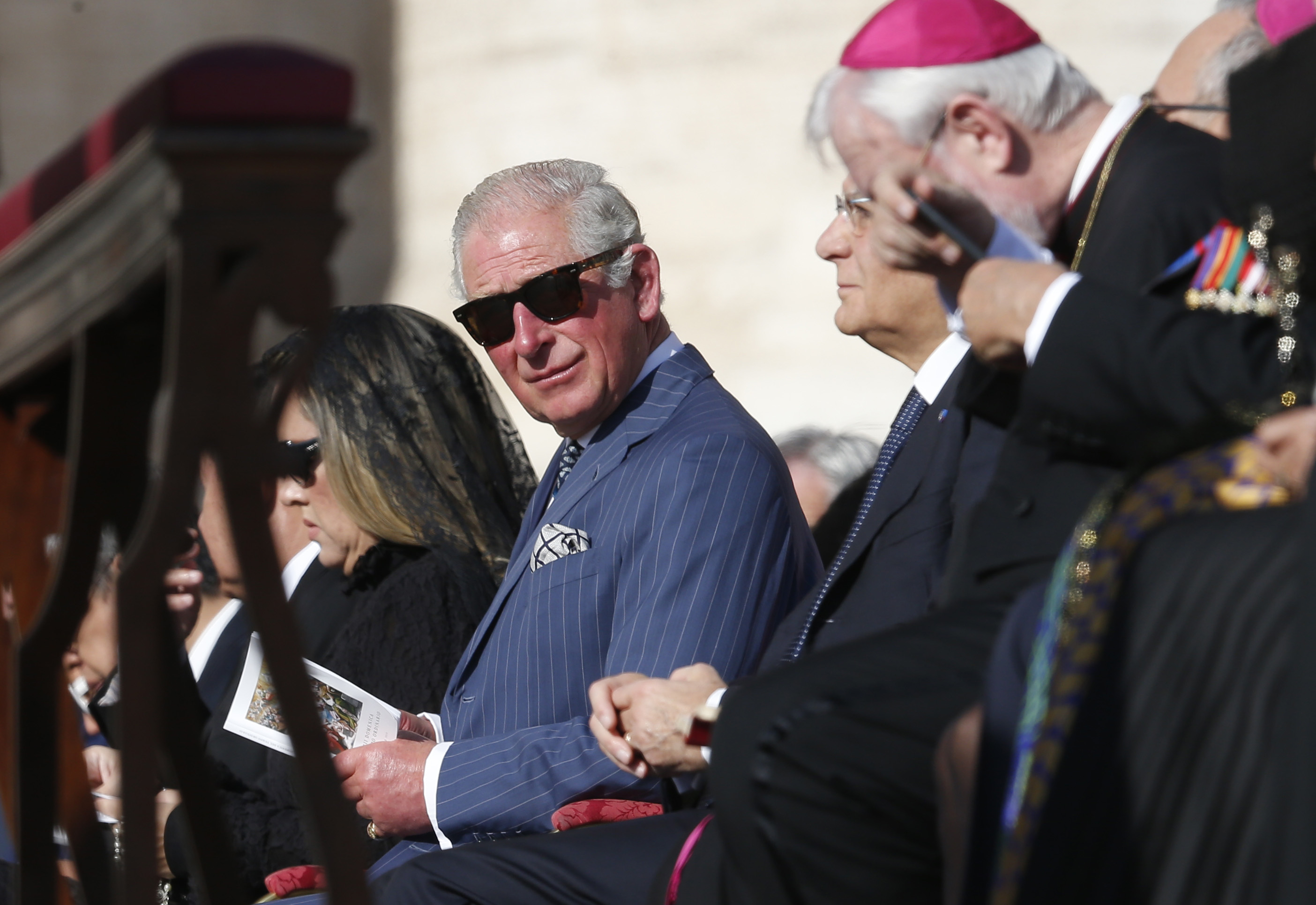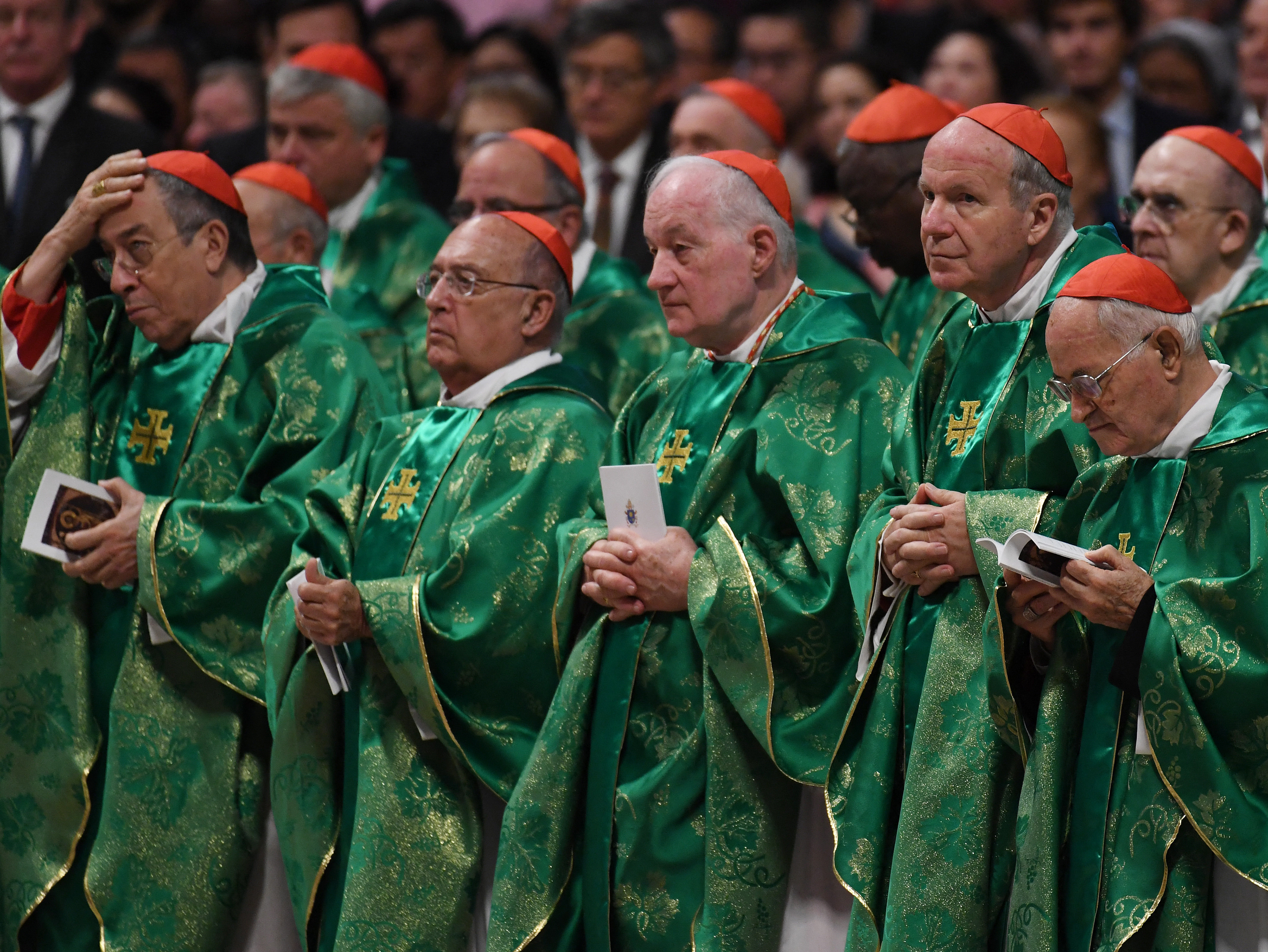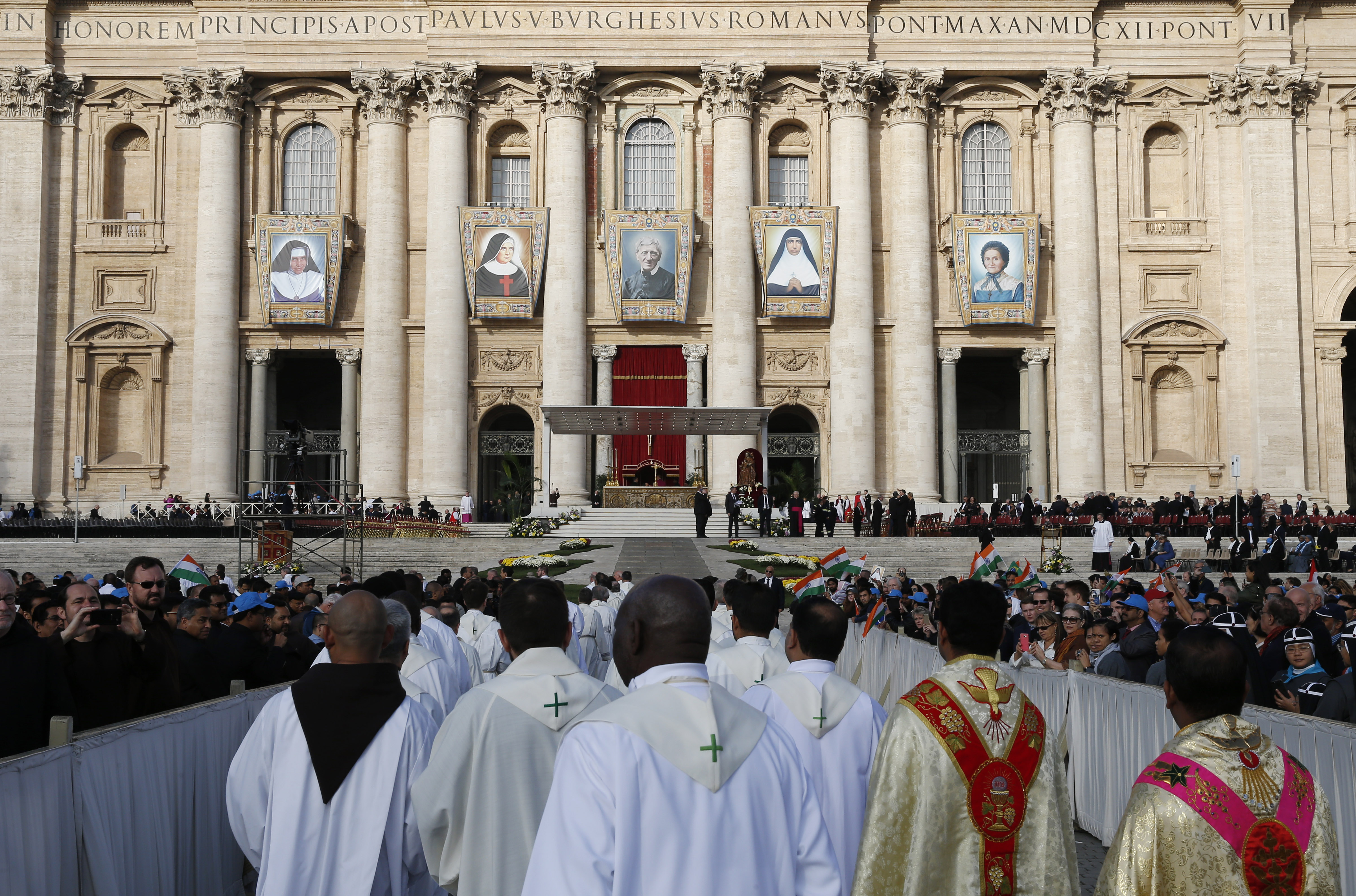John Henry Newman has become the first English saint of the modern era after Pope Francis raised him to the altars during a ceremony in St Peter’s Square.
Under bright blue skies and Rome’s autumn sunshine, the 82-year-old Argentinian Pope pronounced the Latin formula which formally declared the Victorian cardinal a saint. Four women religious were canonised alongside Newman.
Tens of thousands were in the square to witness the moment, including the Prince of Wales, two government ministers, Anglican and Catholic bishops and pilgrims from the United Kingdom who had travelled to Rome for the occasion.
In his homily, the Pope referenced the 19th century cardinal, writer, theologian and poet, while urging believers to go out of their comfort zones.
“Let us ask to be like ‘kindly lights’ amid the encircling gloom,” Francis said, quoting Newman’s hymn “Lead Kindly Light”.
He quoted also from one of the new saint’s sermons where Newman urged Christians to be “cheerful, easy, kind, gentle, courteous, candid, unassuming” and without “pretence”. The Pope concluded his homily with a section from Newman’s “Meditations on Christian Doctrine” where the saint asks for Jesus to “stay with me, and then I shall begin to shine as Thou shinest: so to shine as to be a light for others.”
Saint John Henry Newman (1801-1890), spent years as an Anglican priest and theologian before shocking the church and wider society of his era by deciding to be received into the Catholic Church. His biographers have pointed out how his life was full of difficulties, uncertainties and failures.
During the 13 October canonisation Mass, the Pope said Christian faith demands that believers are willing to “walk uphill” and undergo a purification.
“Faith calls for a journey, a ‘going out’ from ourselves, and it can work wonders if we abandon our comforting certainties; if we leave our safe harbours and our cosy nests,” Francis explained. “Faith increases by giving, and grows by taking risks.”
Like the lepers in the Gospel passage, said the Pope, “all of us need healing” from “our lack of confidence in ourselves, in life, in the future.”
He continued: “We need to be healed of our fears and the vices that enslave us, of our introversion, our addictions and our attachment to games, money, television, mobile phones, to what other people think.”
 HRH The Prince of Wales awaits the start of the Mass. Read his tribute to Newman, published in full in The Tablet. Pic: Paul Haring/CNS.
HRH The Prince of Wales awaits the start of the Mass. Read his tribute to Newman, published in full in The Tablet. Pic: Paul Haring/CNS.
Groups of pilgrims arrived in the square at seven am, more than three hours before the Mass started, to ensure they had seats close to the altar, and the atmosphere in St Peter's Square was reverent but joyful. Many of the travelling pilgrims clustered in the small pockets of shade in the square to pray the rosary.
Isabella Clarke, 24, from Oriel College in Oxford said that Newman's canonisation had sparked a “revival” in the university city where the English saint had lived and worked as an Anglican.
“It feels like England's come to Rome: last night we were in a square and it felt like all of Oxford had hopped up and moved here,” she said.
As the deacon sang the “Ite Missa Est” – the Mass is ended – the crowd burst into applause and started waving flags, which they were forbidden from doing during the service.
Kerstin Pryke, 33, from Suffolk, who decided to attend the canonisation at the last minute when she was given tickets by a friend said: "I've never seen anything like this before. I didn't know the Church still made saints, to be honest! But the atmosphere is so great.”
Following the service the Prince of Wales paid a brief visit to the English College, Rome, followed by a reception at the Collegio Urbano, part of the Pontifical Urban University, and the institution where Newman studied to become a Catholic priest. When Newman was training the college was located in what is now the offices of the Congregation for the Evangelisation of Peoples, known as Propaganda Fide.
The official UK delegation included Therese Coffey, Secretary of State for Work and Pensions, and a Catholic, and Robert Jenrick the Secretary of State for Housing, Communities and Local Government. Rehman Chishti, the Prime Minister’s special envoy for freedom of religion or belief, and members of the All-Party Parliamentary Group on the Holy See were also in Rome for the canonisation.
He also expressed his “deep gratitude” for the presence of those representing the Anglican Communion for the canonisation.



 Loading ...
Loading ...